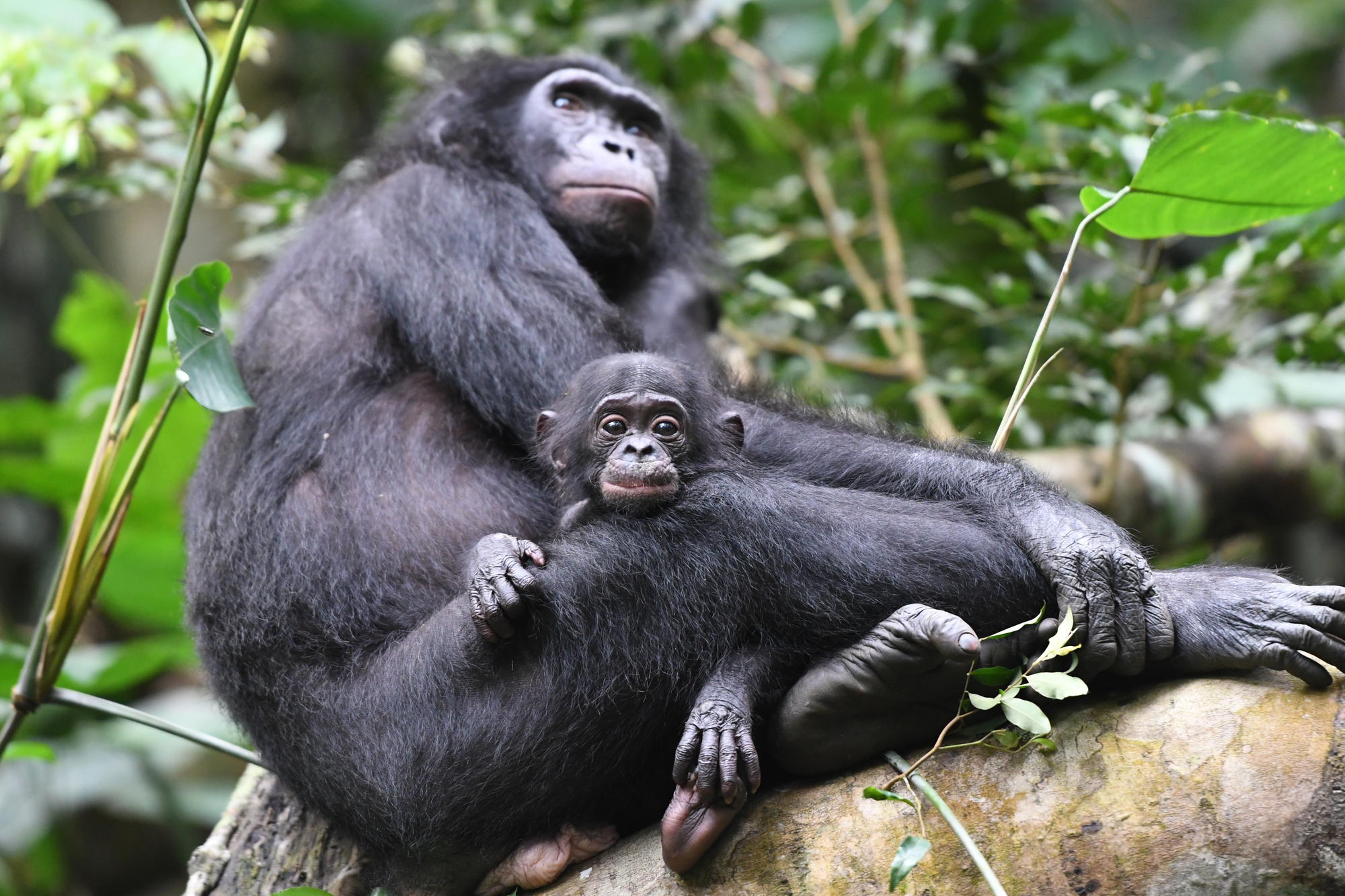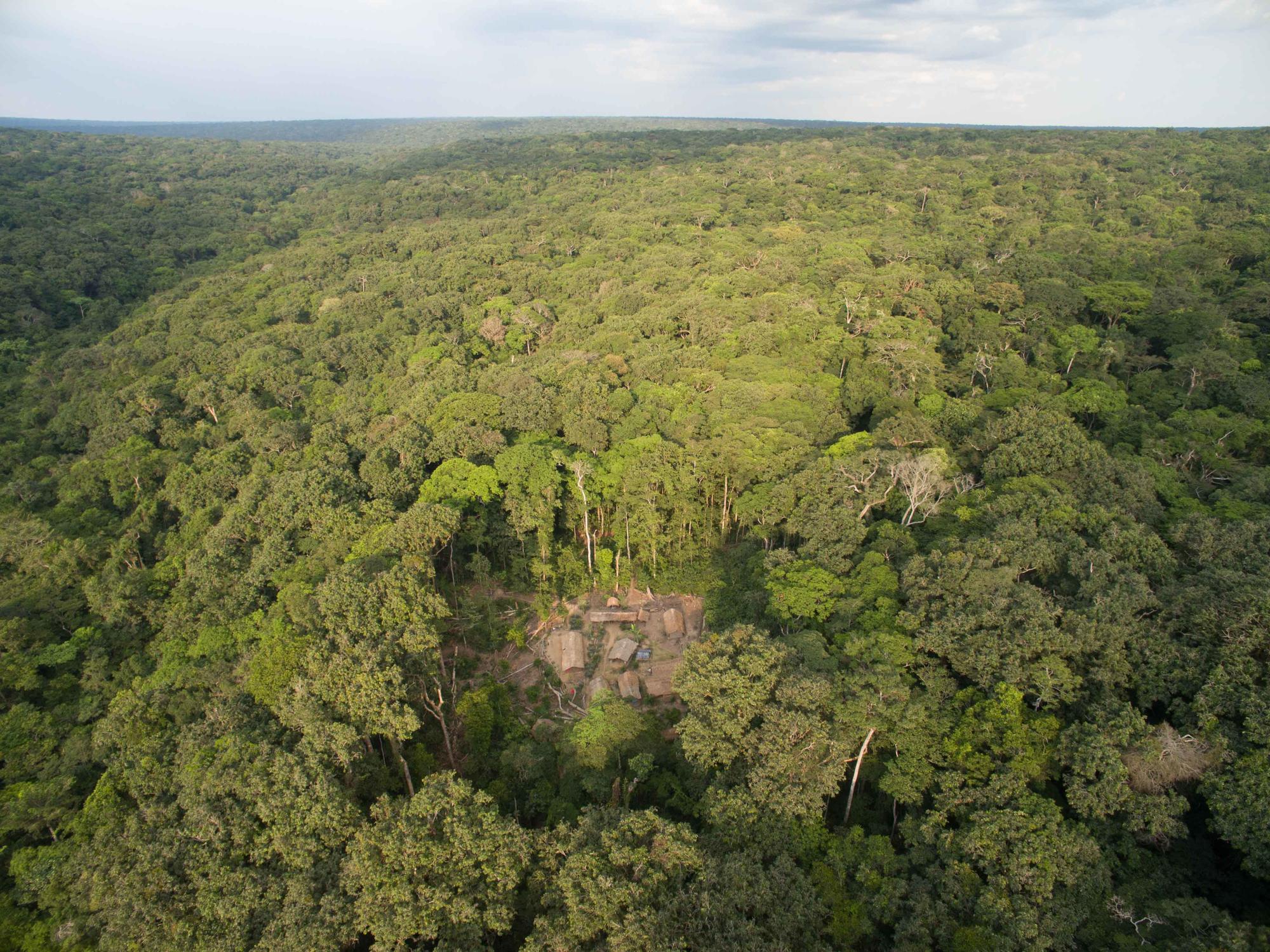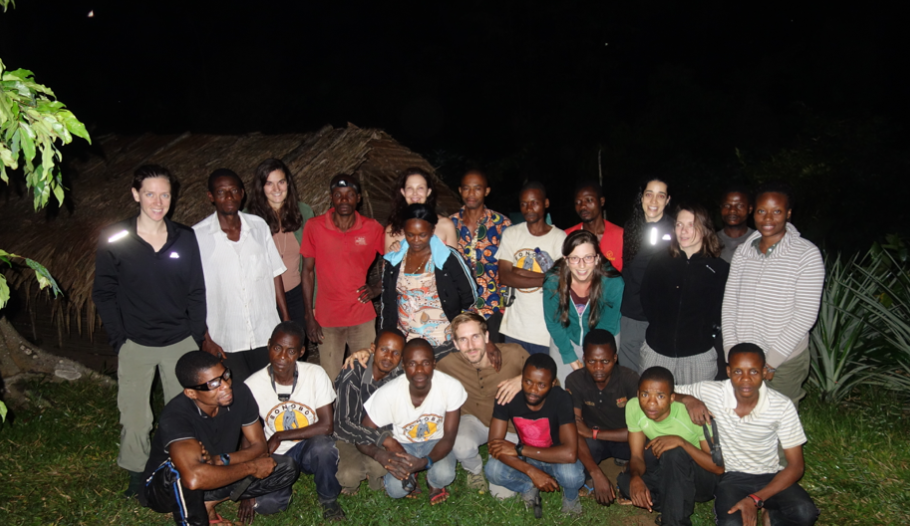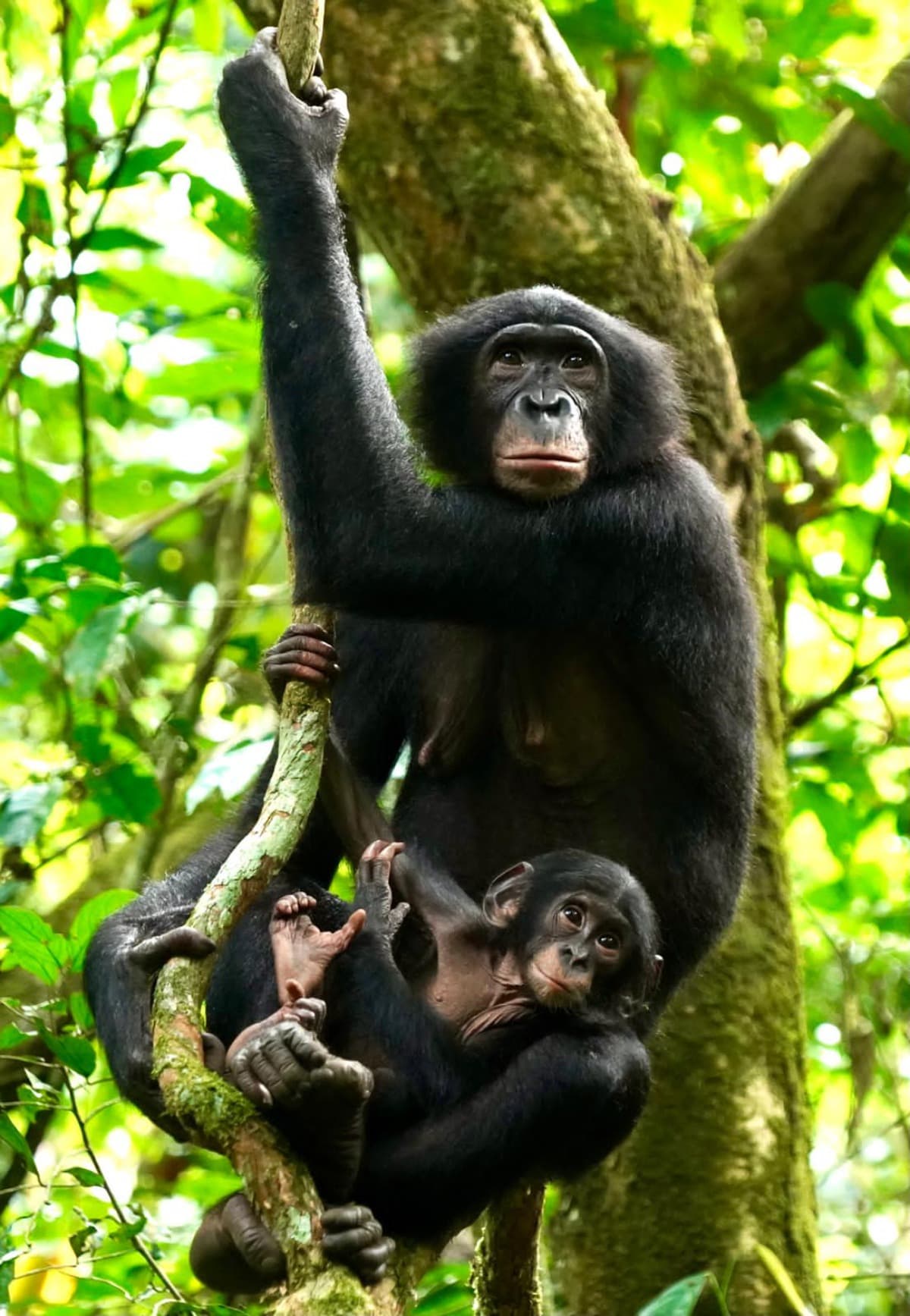KOKOLOPORI FIELD RESEARCH STATION
Exploring evolutionary anthropology through the study of wild bonobos
YOU CAN HELP…
Provide support for local bonobo trackers, conservation initiatives, and schools for local communities around the bonobo field site.
INTRODUCTION
Kokolopori is a site where scientists of many nations come to research our closest living relatives - the bonobo great ape. The Kokolopori team shares the forest with local villagers, who forage mushrooms and caterpillars for income, and remove snares from the forest that could injure bonobos.
Harvard University’s Pan Lab, in the Department of Human Evolutionary Biology, studies non-human primates to shed light on human evolution. The Kokolopori field site was founded in 2016 with the assistance of the Max Planck Institute and the collaboration of the Congo Ministry of Research and local NGO partners.

PROJECT DETAILS
The Kokolopori Bonobo Reserve is a remote community-based field site supporting observation of three habituated bonobo communities of 68 individuals. They are followed on a daily basis from nest to nest by two local trackers and two research assistants who observe them from 6 meters distance and collect observational data as well as urine, fecal, and saliva samples (off fallen fruit bonobos have eaten). This collaboration between local trackers and scientists provides world-leading, groundbreaking research and valuable data which helps paint a picture of humanity’s past.
WHERE YOUR MONEY GOES
Your tax-deductible support helps finance communities investment such as infrastructure, schools, and education initiatives. It also helps fund full-time trackers who follow the bonobo groups from dawn to dusk daily. Close monitoring of the population provides valuable scientific insights whilst also deterring threats from illegal hunting.
Kokolopori is currently enabling each of the five local villages around the bonobos`s range to build a school for their village, and is also starting a health pilot in the villages to train skilled birth attendants to help reduce maternal and infant/child mortality, and assist with reproductive health.

WHY THE BONOBO TRUST ENDORSES THIS PROJECT
Dr. Martin Surbeck’s stewardship of the Harvard University Pan Lab places an emphasis on local partnerships and capacity-building for the communities who share the Congo Basin with bonobos. He founded the Kokolopori field site and continues to conduct research supported by local communities.




